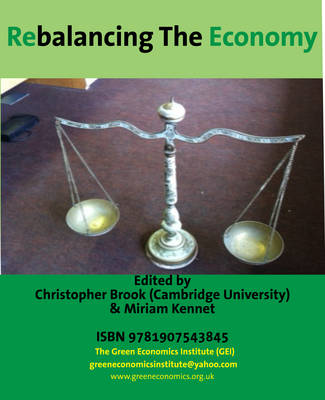Rebalancing the Economy 'It's the economy, stupid' is one of the most well-known phrases in politics and it perfectly highlights the problem with politics today. However, you cannot blame the politicians that they prioritise the economy over everything else; the problem lies in how we measure their success. GDP is the most quoted statistic about any country's economy with economic policies being judged mainly by their effect on GDP. Most other policies are heavily judged on their effect on this one statistic. Governments have risen and fallen on the back of this one statistic. In 1934 Kuznets warned against equating GDP with well-being. However, for the last 70 years that is what it has become.Growth will always trump other objectives and so these politicians only want to measure growth. This has become even more relevant since the recession, when many governments have focused on growth. Governments are voted in on their short term agendas. One fundamental truth must be recognized: the planet cannot accommodate high income status for all 7 billion plus of its inhabitants.For every country to attain per capita GDP of $13,000 (the World Bank's definition of high income), global GDP would need to rise to $91 trillion.
If, however, we already use the equivalent of 1.5 Earths to provide the resources we consume and to absorb our waste, how can we? The planet can sustainably support a GDP of around $50 trillion. If the planet already exceeds its sustainable carrying capacity, we need to be reducing our demands on it - not adding new ones. Simply put, we can no longer depend on GDP growth, and the limitless wealth accumulation that it implies, to solve our social and economic problems.
- ISBN10 1907543848
- ISBN13 9781907543845
- Publish Date 1 August 2014
- Publish Status Active
- Publish Country GB
- Imprint The Green Economics Institute
- Format Paperback
- Language English
